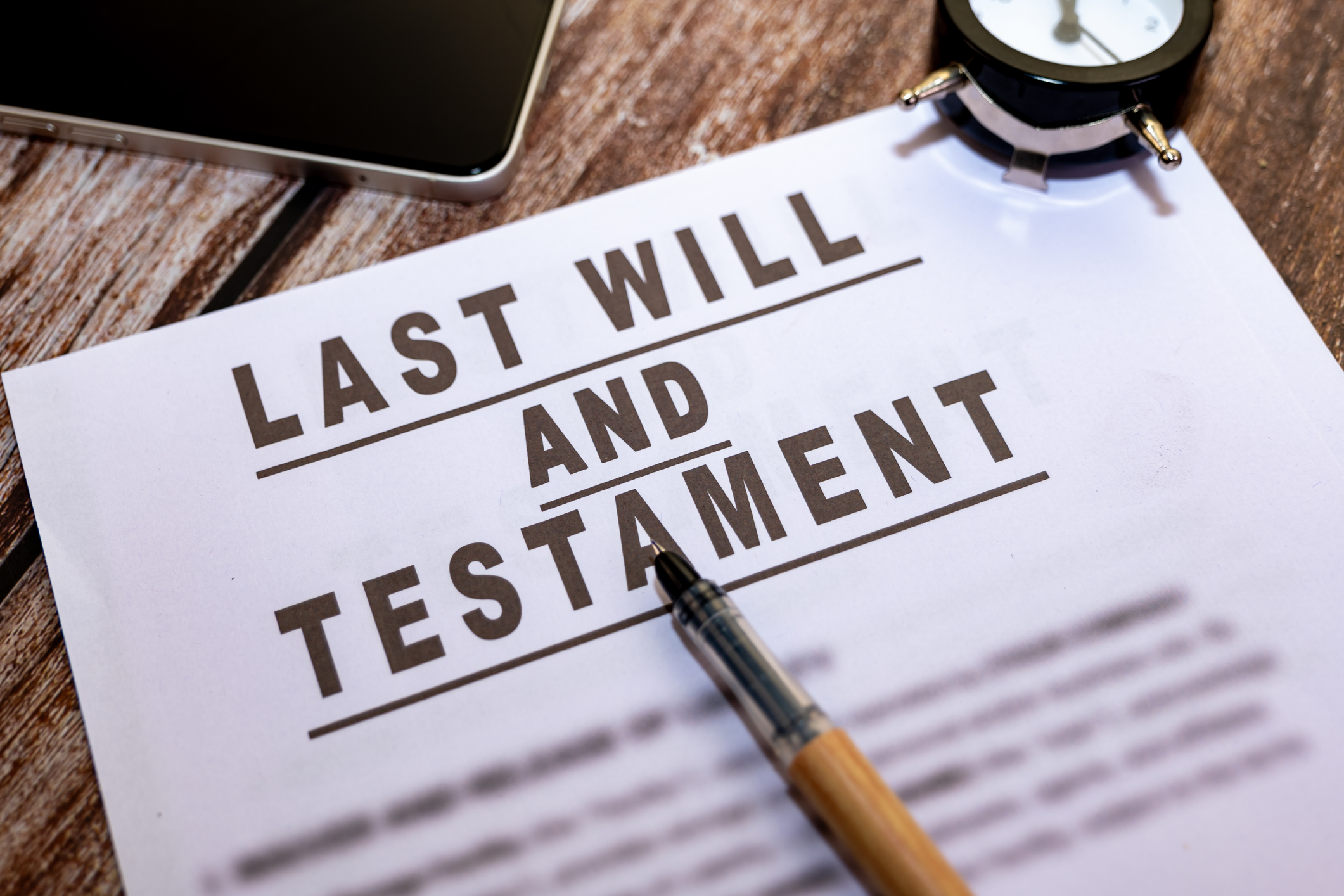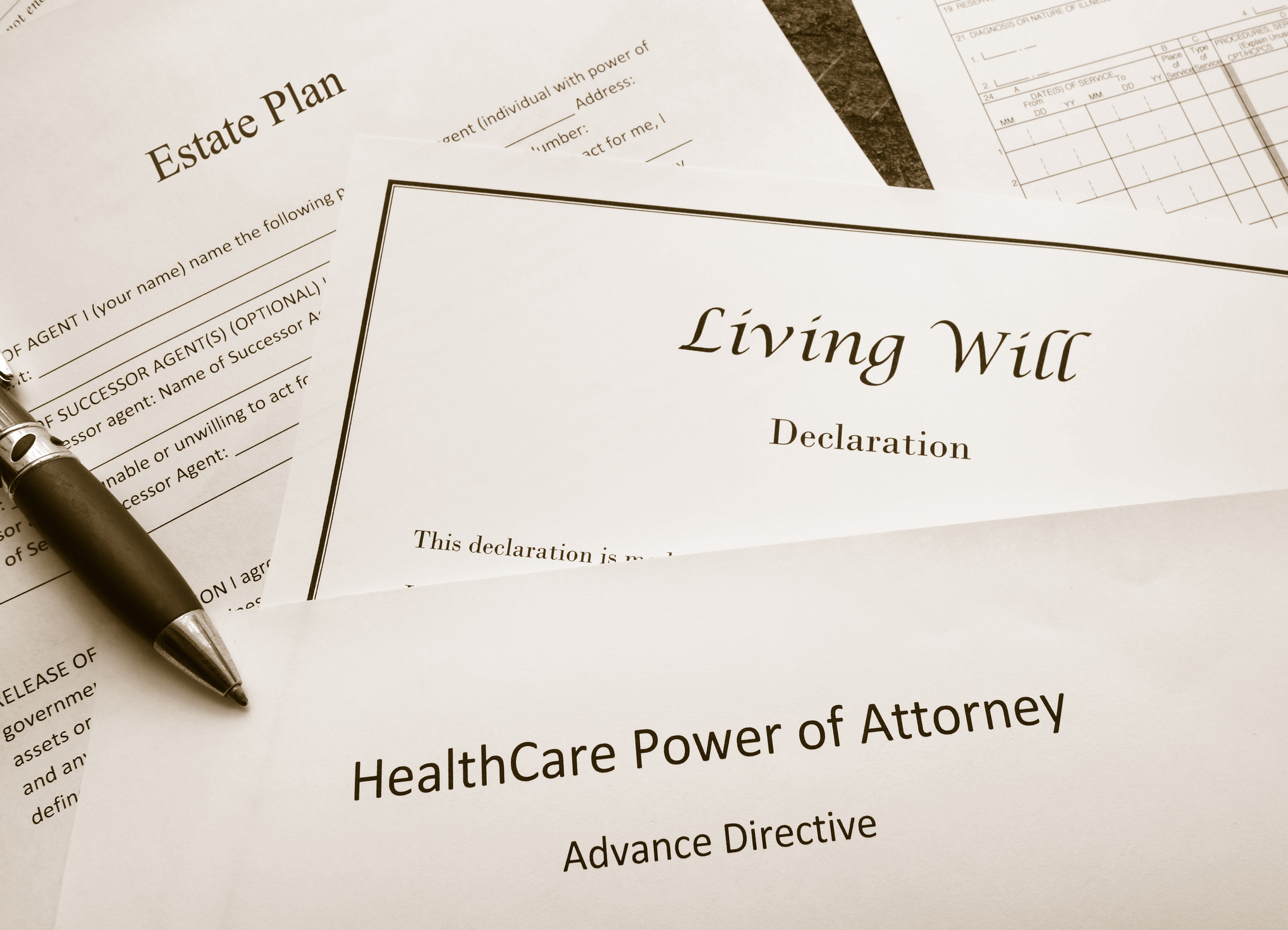Estate Planning for Singles: 10 Things You Should Know
Estate planning for singles is deceptively complex. Here's how to break it down.


Profit and prosper with the best of Kiplinger's advice on investing, taxes, retirement, personal finance and much more. Delivered daily. Enter your email in the box and click Sign Me Up.
You are now subscribed
Your newsletter sign-up was successful
Want to add more newsletters?

Delivered daily
Kiplinger Today
Profit and prosper with the best of Kiplinger's advice on investing, taxes, retirement, personal finance and much more delivered daily. Smart money moves start here.

Sent five days a week
Kiplinger A Step Ahead
Get practical help to make better financial decisions in your everyday life, from spending to savings on top deals.

Delivered daily
Kiplinger Closing Bell
Get today's biggest financial and investing headlines delivered to your inbox every day the U.S. stock market is open.

Sent twice a week
Kiplinger Adviser Intel
Financial pros across the country share best practices and fresh tactics to preserve and grow your wealth.

Delivered weekly
Kiplinger Tax Tips
Trim your federal and state tax bills with practical tax-planning and tax-cutting strategies.

Sent twice a week
Kiplinger Retirement Tips
Your twice-a-week guide to planning and enjoying a financially secure and richly rewarding retirement

Sent bimonthly.
Kiplinger Adviser Angle
Insights for advisers, wealth managers and other financial professionals.

Sent twice a week
Kiplinger Investing Weekly
Your twice-a-week roundup of promising stocks, funds, companies and industries you should consider, ones you should avoid, and why.

Sent weekly for six weeks
Kiplinger Invest for Retirement
Your step-by-step six-part series on how to invest for retirement, from devising a successful strategy to exactly which investments to choose.
Estate planning for singles is crucial for your long-term peace of mind. It lays out what you want to happen to your assets after death and during situations when you can’t make decisions. But if you’ve never married or were married a long time ago and have no children, don’t assume estate planning is a breeze. It’s not.
“People often think estate planning will be simpler in this situation, [but] it’s a lot more complicated,” says James C. Bartholomew, an estate planning attorney in Bend, Ore. “That’s why getting the right documents and plans in place is so important.”
Estate planning for singles: why it's different
There are a few reasons why estate planning for singles can be tricky.
From just $107.88 $24.99 for Kiplinger Personal Finance
Become a smarter, better informed investor. Subscribe from just $107.88 $24.99, plus get up to 4 Special Issues

Sign up for Kiplinger’s Free Newsletters
Profit and prosper with the best of expert advice on investing, taxes, retirement, personal finance and more - straight to your e-mail.
Profit and prosper with the best of expert advice - straight to your e-mail.
First, many older retirees are female, so estate planning for women is critical. Women have unique issues to consider, such as longer lives and more pressure to leave work to be caretakers, for example.
Second, many singles have fewer resources to pay for estate planning. There are ways to save money on an estate plan, if need be. (If you are single and wealthy, you should look into special trusts and other tips for estate planning for millionaires.)
The number of unmarried, childless Americans over 50 continues to grow. If you’re among them, here’s what you need to know:
1. Having no estate plan can put a stranger in charge
If you die without an estate plan, a.k.a. intestate, the courts distribute your property according to state law. The courts also pick someone to make healthcare decisions and manage your money when you cannot.
For someone with a spouse and/or children, it can work out because state laws pick these immediate relatives by default. But if you’re single, state laws will go down your list of relatives — parents to siblings to nieces and nephews, aunts and uncles and cousins until they find a match. “The further a relative is down this list, the less likely they are to be who the person would have named,” says Bartholomew.
If you have no living relatives, the courts will pick a guardian for you. The state will also keep your property if you have no living relatives and die without an estate plan.
2. List your healthcare wishes ahead of time

You can use a healthcare power of attorney to pick someone to speak with doctors about your medical situation and help make decisions for your care. If you name a close friend, make sure they can come see you and wouldn’t be blocked by hospital visitation rules.
You could also draw up an advance directive laying out your desires for end-of-life care, such as whether you want to stop aggressive treatment if you have no chance of survival. “Without instructions, doctors will default to doing whatever it takes to keep a person alive,” says Bruce Tannahill, a director of estate planning with MassMutual.
3. Decide who will manage your money
A financial power of attorney names someone to manage your financial accounts and pay your bills when you cannot. “It should be someone in a similar financial position whom you closely trust,” says Tannahill.
This role can usually be handled by a nonprofessional, with the support of your professional advisers, says Tannahill. A sibling, a niece or nephew or a close friend are possibilities. Make a list of your financial accounts for this person, as well as the names of your advisers.
4. Plan your inheritance and update as needed

A will lays out where you want your property to go after you pass away. You can leave property to friends, charities and other organizations; it’s not just restricted to family.
You could also leave money behind to care for a beloved pet and name who will look after it when you’re gone. You could set up a trust fund to pay out a set amount each year to make sure your pet is taken care of.
Your will should name an executor to oversee the process of distributing the inheritance. You could use a friend or family member for this role. You could also hire a professional from a bank or a lawyer or an accountant. You can hire an attorney to create all your estate plan documents or you could use online services like LegalZoom or Trust & Will.
Make sure to review every three to five years and update estate plan documents as your life and priorities change.
5. Trust funds streamline the process
A revocable trust fund is a legal entity that can hold your property, such as bank accounts, brokerage accounts and real estate. But since it’s revocable, you can take the property back whenever you want.
You set up a revocable trust with a trust company or the trust division of a bank. If you become incapacitated, your contact at the trust company manages the accounts on your behalf and pays your bills.
There are benefits to working with a professional, says Bryan Bell, a financial planner with First Horizon Bank in Brentwood, Tenn. “You may think your nephew is up to the job, but when you need him, he could be juggling responsibilities with his kids, maybe he just lost his job.”
When you die, you also list instructions in the trust fund for distributing your assets. You sidestep probate, the court process of reviewing your will. A trust fund costs about 1% per year of the assets you put in, estimates Bell.
6. State inheritance tax laws are a potential problem

You can leave up to $13.61 million in 2024 without owing federal estate taxes. However, 17 states and the District of Columbia charge estate and inheritance taxes with lower exemptions, especially for single people.
“A lot of exemptions are based on family relationships,” says Bartholomew, the estate planning attorney from Oregon.
For example, New Jersey doesn’t charge inheritance taxes on property left to spouses, domestic partners, children, grandchildren and parents. But leave property worth $500 or more to more distant relatives or friends, and the state will tax it at rates of up to 16% — no exemptions.
7. You can pre-arrange your funeral
If you plan your funeral ahead of time, that takes another uncomfortable decision off the hands of your relatives and friends. “Do you want to be cremated? Be buried in a certain area? Make sure it’s all laid out, and someone knows your wishes,” says Bell, the financial planner from Tennessee.
You could pre-arrange a package with churches, cemeteries and funeral homes. While you could pre-pay while alive or your executor could pay out of your assets after you pass, says Bell. If you pre-arrange a funeral, make sure to document what the other party agreed to on costs, and let relatives know where they can find this information.
8. Make your long-term-care plan

This should be one of your most significant areas of focus. Consider what you want to happen if you need help being taken care of after a severe illness or injury. You could use an in-home nursing service if you want to age in place and stay out of a nursing home as long as possible.
If that’s what you want, think about how you’d pay for long-term care, either using long-term care insurance, a hybrid life insurance policy with long-term care coverage or your savings. You should also modify your home so you can still manage it after a decline in physical abilities.
9. Be careful when dating
It’s possible to find love at any age. But keep your guard up if you enter a new relationship, whether in real life or online. “People might think, ‘Here’s a single person with no kids who seems to have a lot of money.’ Ask yourself their motive in the situation,” says MassMutual’s Tannahill.
You can avoid being taken advantage of by maintaining separate finances and not giving the new person control over your accounts and not making them your financial power of attorney.
Online dating and social media have increased the vulnerability of those seeking romance. In a practice known as catfishing, scammers steal the social media identity of another person to woo potential lovelorn victims online, eventually asking for loans, favors or help paying for travel to meet in person. It's a good idea to be on the lookout for general financial frauds and scams these days, as con artists use artificial intelligence and deep fakes to make their scams even more challenging to spot.
10. Find others to check up on you

Consider teaming up with another relative or close friend to make sure you’re both OK. You could schedule a daily check-in call or text message. You might ask the person with your financial power of attorney to keep an eye on your spending. If there are any unusual purchases, he or she should make sure you’re still making appropriate decisions.
Stay active in groups and activities. If you stop showing up, someone likely will check up on you. It’s good for your mental well-being as well. “Retirees shouldn’t stay at home and watch TV alone every day. They need to get out in the community,” says Tannahill.
Note: This item first appeared in Kiplinger Retirement Report, our popular monthly periodical that covers key concerns of affluent older Americans who are retired or preparing for retirement. Subscribe for retirement advice that’s right on the money.
Related Content
Profit and prosper with the best of Kiplinger's advice on investing, taxes, retirement, personal finance and much more. Delivered daily. Enter your email in the box and click Sign Me Up.

David is a financial freelance writer based out of Delaware. He specializes in making investing, insurance and retirement planning understandable. He has been published in Kiplinger, Forbes and U.S. News, and also writes for clients like American Express, LendingTree and Prudential. He is currently Treasurer for the Financial Writers Society.
Before becoming a writer, David was an insurance salesman and registered representative for New York Life. During that time, he passed both the Series 6 and CFP exams. David graduated from McGill University with degrees in Economics and Finance where he was also captain of the varsity tennis team.
-
 Quiz: Do You Know How to Avoid the "Medigap Trap?"
Quiz: Do You Know How to Avoid the "Medigap Trap?"Quiz Test your basic knowledge of the "Medigap Trap" in our quick quiz.
-
 5 Top Tax-Efficient Mutual Funds for Smarter Investing
5 Top Tax-Efficient Mutual Funds for Smarter InvestingMutual funds are many things, but "tax-friendly" usually isn't one of them. These are the exceptions.
-
 AI Sparks Existential Crisis for Software Stocks
AI Sparks Existential Crisis for Software StocksThe Kiplinger Letter Fears that SaaS subscription software could be rendered obsolete by artificial intelligence make investors jittery.
-
 Quiz: Do You Know How to Avoid the 'Medigap Trap?'
Quiz: Do You Know How to Avoid the 'Medigap Trap?'Quiz Test your basic knowledge of the "Medigap Trap" in our quick quiz.
-
 We Retired at 62 With $6.1 Million. My Wife Wants to Make Large Donations, but I Want to Travel and Buy a Lake House.
We Retired at 62 With $6.1 Million. My Wife Wants to Make Large Donations, but I Want to Travel and Buy a Lake House.We are 62 and finally retired after decades of hard work. I see the lakehouse as an investment in our happiness.
-
 Social Security Break-Even Math Is Helpful, But Don't Let It Dictate When You'll File
Social Security Break-Even Math Is Helpful, But Don't Let It Dictate When You'll FileYour Social Security break-even age tells you how long you'd need to live for delaying to pay off, but shouldn't be the sole basis for deciding when to claim.
-
 I'm a Wealth Adviser Obsessed With Mahjong: Here Are 8 Ways It Can Teach Us How to Manage Our Money
I'm a Wealth Adviser Obsessed With Mahjong: Here Are 8 Ways It Can Teach Us How to Manage Our MoneyThis increasingly popular Chinese game can teach us not only how to help manage our money but also how important it is to connect with other people.
-
 Global Uncertainty Has Investors Running Scared: This Is How Advisers Can Reassure Them
Global Uncertainty Has Investors Running Scared: This Is How Advisers Can Reassure ThemHow can advisers reassure clients nervous about their plans in an increasingly complex and rapidly changing world? This conversational framework provides the key.
-
 5 Ronald Reagan Quotes Retirees Should Live By
5 Ronald Reagan Quotes Retirees Should Live ByThe Nation's 40th President's wit and wisdom can help retirees navigate their financial and personal journey with confidence.
-
 We're 78 and Want to Use Our 2026 RMD to Treat Our Kids and Grandkids to a Vacation. How Should We Approach This?
We're 78 and Want to Use Our 2026 RMD to Treat Our Kids and Grandkids to a Vacation. How Should We Approach This?An extended family vacation can be a fun and bonding experience if planned well. Here are tips from travel experts.
-
 Should You Jump on the Roth Conversion Bandwagon? A Financial Adviser Weighs In
Should You Jump on the Roth Conversion Bandwagon? A Financial Adviser Weighs InRoth conversions are all the rage, but what works well for one household can cause financial strain for another. This is what you should consider before moving ahead.